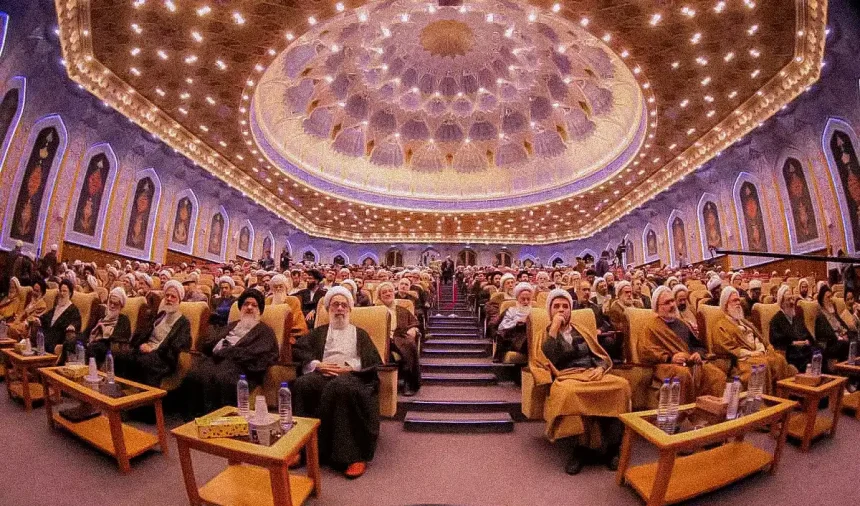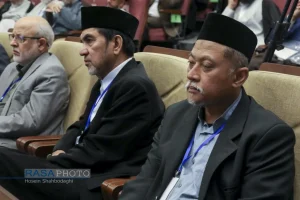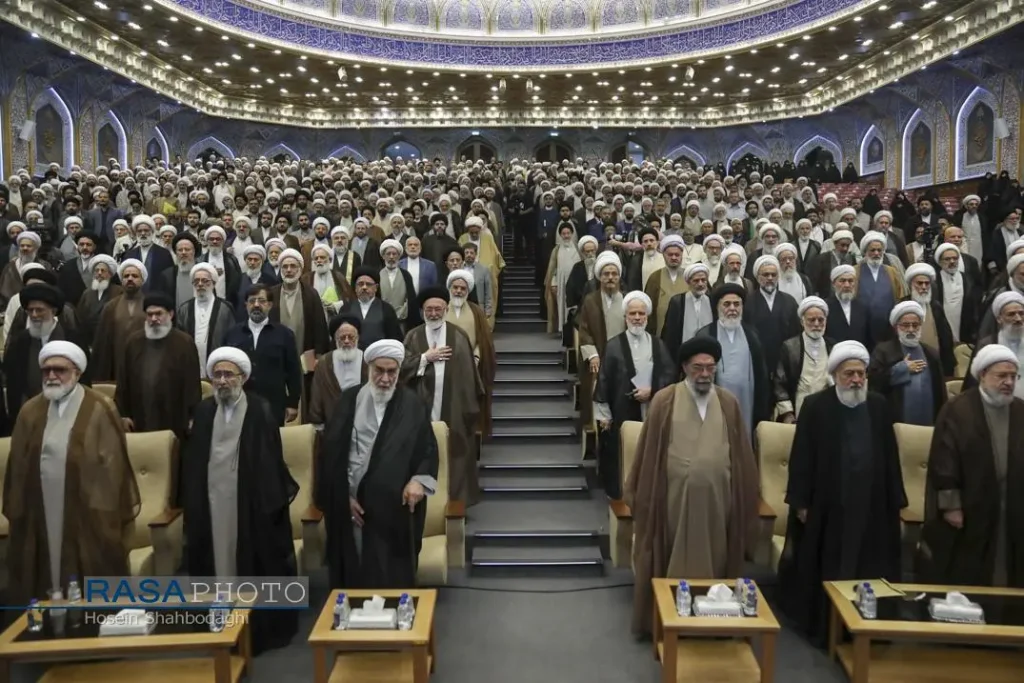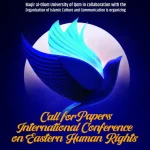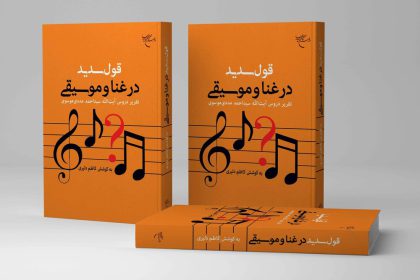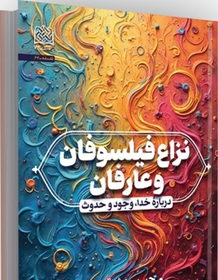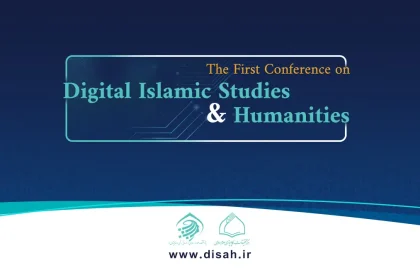Introduction: A Step Toward a New Paradigm
The Qom Seminary is one of the two major centers of Shīʿī scholarship. Although its roots go back to the early centuries of Islam, the seminary was re-established and revitalized in 1922 by Ayatollah ʿAbd al-Karīm Ḥāʾirī Yazdī. Throughout the 14th century SH, with the leadership of Ayatollah Sayyid Ḥusayn Burūjirdī, Qom rose to become one of the two leading Shīʿī seminaries, standing alongside the Najaf Seminary. Following the restrictions faced by the Najaf Seminary during the 1970s to 1990s, and with the relocation of a number of its teachers and students to Qom, the Qom Seminary emerged as the primary scholarly hub of Shiʿism. It developed into a vibrant institution composed of marājiʿ al-taqlīd (religious authorities), mujtahids[1], teachers, students, researchers, and authors, supported by hundreds of schools, libraries, research centers, and academic-cultural institutions active in diverse fields of religious studies. In this way, Qom became the principal center for the production, teaching, and dissemination of religious thought in the Shīʿī world.
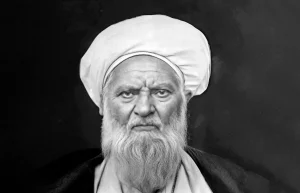
Qom, from its very beginning, was not only a place for the traditional teaching of Islamic fields such as fiqh (jurisprudence), uṣūl al-fiqh (principles of jurisprudence), and kalām (theology), but gradually became a center for the interaction between tradition and intellectual innovation. Over the decades, the seminary has played a decisive role in shaping intellectual currents, training mujtahids and scholars, and even influencing the socio-political transformations of Iran and beyond. For this reason, examining the intellectual and scientific reflections of the Qom Seminary is not merely a historical or intra-religious matter, but part of the broader trajectory of Islamic thought in the modern era.
The Centennial Conference of the Re-establishment of the Qom Seminary, held on 7–8 May 2025, offered a great opportunity to review and analyze a century of scholarly and institutional experience of this center. The significance of this event lay not only in commemorating the past legacy but especially in highlighting the new intellectual and research horizons that have emerged in Qom in recent years. From this perspective, the conference was less a memorial ceremony and more a sign of the seminary’s institutional and scholarly self-awareness in facing the global transformations of the humanities and Islamic sciences.
The importance of this conference can be identified in several respects. First, it provided the possibility for a critical review of the achievements and challenges of the seminary over the past century. Second, it created a platform for proposing new intellectual ideas and innovations—ideas seeking to build constructive connections between the longstanding tradition of Islamic sciences and the needs of the contemporary world. Third, the conference offered a setting for interdisciplinary dialogue, where topics such as Islamic philosophy, social sciences, intercultural studies, and even cognitive sciences were raised in lectures and specialized panels.
The purpose of this article is to address more fundamental questions: What transformations in the intellectual and scientific approach of the Qom Seminary were reflected in this conference? What innovations in the fields of fiqh, kalām, tafsīr (exegesis of the Qurʾān), and Islamic philosophy were presented? And what do these developments mean for the future of religious knowledge production within the broader framework of the humanities?

Accordingly, this article is organized not as a descriptive report but as a critical-academic analysis. Its structure is arranged as follows: first, it examines the key messages and lectures delivered by prominent intellectuals and scholars; second, it explores the specialized panels and the newly introduced scholarly contributions; and finally, it concludes with an analytical discussion of the achievements, challenges, and future prospects of the Qom Seminary. This analytical approach enables thoughtful readers—including scholars of Islam, Orientalists, and researchers in the humanities—to gain, beyond superficial impressions, a more precise picture of the intellectual dynamics at work within one of the most important contemporary religious institutions of the Islamic world.
New Jurisprudential Approaches; The Civilizational Scope of Religious Understanding Beyond Long-Standing Traditions
One of the highlights of the conference was the messages and lectures delivered by renowned scholars and leading intellectual figures. These presentations introduced novel insights into the intellectual transformations of the seminary, offering not merely historical reflections but rather a roadmap for “the production of religious knowledge in the new lifeworld.” At the content level, three emerging themes can be identified:
- Re-examining the relationship between the fiqhī tradition and contemporary issues of governance.
- Emphasizing the expansion of interdisciplinary research and the ethics of scholarly inquiry.
- Highlighting the necessity of advancing the methodologies of ijtihād[2] in dealing with data from the humanities and civilizational phenomena.
Within the first theme, concerning governance, several contributions extended the interpretation of fiqhī principles (such as “lā ḍarar,”[3] “negation of ʿusr and ḥaraj,”[4] and “taqdīm al-ahamm fa al-ahamm”[5]) into the domain of public policy. The idea of “evidence-based fiqh of governance”—in which fatwā (legal judgment) presupposes a kind of consequential assessment and empirical data—was presented as a significant shift. In this context, participants stressed the need to elevate the discussion of “applied fiqh” (fiqh muḍāf) from the level of individual rulings to that of regulatory frameworks, and offered practical strategies toward this goal.
The second theme focused on research methodology. Here, the notion of “interactive uṣūl al-fiqh” was underscored, suggesting that operative principles (uṣūl ʿamaliyya) and indications (amārāt), when confronted with the uncertainty of empirical social sciences, require weighting algorithms for handling evidence. The proposal of “evidence-based ijtihād” seeks to synthesize transmitted proofs (adilla naqliyya) with measurable social data within a single framework of inference, without undermining the authority of the former. This orientation, however, raised critical questions in three areas that demand further clarification: the boundaries of data reliability, the danger of scientism, and the potential conflict between the higher objectives of the Sharīʿa (maqāṣid al-sharīʿa) and conventional welfare indicators.
Some presentations also emphasized new approaches in Qurʾānic exegesis and ḥadīth studies. In tafsīr, the model of a “maqāṣid-based analogical hermeneutics” was noteworthy, linking overarching objectives (such as the preservation of life, reason, lineage, and human dignity) with analogical reasoning in addressing contemporary issues. Case studies included “artificial intelligence and moral agency,” “biotechnology and the boundaries of dignity,” and “platform economies and distributive justice.” In ḥadīth studies, the proposal of a “reinforced reliability assessment” was introduced, employing isnād[6] graph analysis to evaluate the credibility of narrations with new quantitative tools while maintaining continuity with classical criteria.
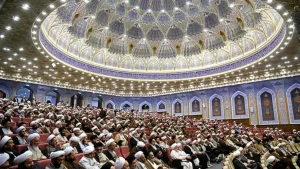
The interdisciplinary character of the conference extended these concerns: for example, linking Islamic philosophy with cognitive sciences in the discussion of “the relation between practical reason and ethical decision-making,” or engaging sociology of religion and social fiqh on “the institution of religion and social capital,” as well as the implications of religious policymaking for civic cohesion. A critical voice was also present, warning against reducing religion to mere social function or ritual practice, questioning the limits of secularizing Sharīʿa, and emphasizing the need to safeguard epistemological foundations in dialogue with the empirical sciences.
Taken together, the general and specialized presentations of the conference aimed to demonstrate that this “new jurisprudence” has moved beyond general recommendations and approached methodological proposals: from evidence-based fiqh of governance to foundational rethinking of cyberspace, and from theoretical responses to emerging technologies to the foundations of philosophies of management and economics. If these scholarly transformations continue along the path of rigorous uṣūl-based formulations and innovative mechanisms in Qurʾānic and ḥadīth inference, they may open new horizons for the production of religious knowledge.
Specialized Panels and New Scholarly Contributions
One of the most prominent dimensions of the Centennial Conference of the Re-establishment of the Qom Seminary was the organization of twenty-five specialized panels, each reflecting, in its own way, the seminary’s effort to respond to contemporary intellectual and social challenges. These panels, both in terms of their thematic focus and the composition of their speakers, demonstrated a deep awareness of the seminary’s scholarly heritage as well as an acute sensitivity to emerging phenomena. Among them, nine panels received particular attention which are outlined below.
Epistemology and Islamic Philosophy
This panel explored a wide range of epistemological discussions, underscoring the undeniable role of the Qom Seminary in sustaining rational inquiry and engaging with competing schools of thought and deviant teachings. The training of hundreds of prominent scholars in philosophy, the production of thousands of books and articles, and the development of foundational innovations in philosophy—all testify to the upward trajectory of philosophical scholarship in Qom during the past century. Notable characteristics of Qom’s intellectual tradition include: the predominance of Ṣadrian philosophy, the emergence of the neo-Ṣadrian movement, the inheritance of philosophical traditions from Tehran, Isfahan, and Najaf, the sustained encounter with Western philosophy, an intensified focus on epistemological concerns, and an increasing engagement with applied philosophies.
A central figure in this regard was ʿAllāma Ṭabāṭabāʾī, who is often considered the founder of Islamic epistemology. Through the classification, systematization, and formulation of epistemological issues, he and his students contributed significantly to the expansion of this field. Moreover, they applied epistemological perspectives to the resolution of problems across various disciplines, especially within religious knowledge itself, thereby deepening and consolidating epistemological inquiry in the seminary.
Fiqh of Media, Communications, and New Information Technologies
This panel highlighted that, although the Qom Seminary’s engagement with the academic and theoretical dimensions of media and communications is relatively new, it has nonetheless initiated innovative pathways through the establishment of research centers, the development of theoretical frameworks, discourse formation, networking, and the cultivation of scholarly trends, albeit on a limited scale.
Key initiatives include the training of specialists in media management, communication sciences, and strategic studies of religion and media; the establishment of dedicated chairs on the fiqh of media; and the education of researchers and experts in communication studies. These scholarly efforts, particularly since the Islamic Revolution, have aimed to develop innovative frameworks in the production of Islamic humanities, the logical articulation of ideas, and the institutionalization of methodical innovation to address contemporary issues in media and communication.
One major theme discussed was the fundamental transformation of cyberspace. A macro-level perspective, attention to theoretical foundations, and careful adoption of principles and strategies for a rational engagement with cyberspace are all factors that influence proper understanding and proactive interaction with this domain.
Cyberspace represents a new realm of societal governance and leadership, which is currently dominated in many dimensions by large economic cartels pursuing their own specific agendas. A correct and profound understanding of this issue, from multiple perspectives, points to a single rational course of action in dealing with cyberspace: “a fundamental revolution and transformation of cyberspace.” The articulation of the discourse and principles of this fundamental transformation falls within the responsibility of Islamic seminaries.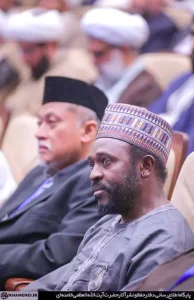
Artificial intelligence was also addressed. The panel emphasized at least three areas in which seminaries must integrate AI: as a research assistant for Islamic scholars; as a tool for implementing seminary programs; and as a means of identifying the system of issues in the new Islamic civilization. Other promising applications of intelligent technologies include analyzing research trends, visualizing academic outputs, enhancing collaborative research, and enabling advanced specialized search. Building on this foundation, the panel proposed a macro-project titled “Artificial Intelligence and Islamic Sciences,” aimed at enabling AI to serve at every stage of religious scholarship—from the extraction of religious teachings and their dissemination, to their realization within society.
Fiqh of Economics and Fiqh of Management
The methodology of Islamic economics in the Qom Seminary during the past century began with the thought of Ayatollah Shāh-Ābādī. It later reached maturity with the introduction of the theories of Ayatollah Muḥammad Bāqir al-Ṣadr and the presence of his students in Qom, coinciding with the Islamic Revolution in Iran.
Among the methodological approaches that developed in Qom during this century are: “formation and assertion,” “synthesis,” “independent theorization,” “deriving economic theory from the Qurʾān and narrations,” “institutionalism,” “codified thought theory,” “inference of sub-systems and macro-systems,” “derivation of social rulings,” “jurisprudential-model reasoning,” “multi-stage methodology,” “external thematic interpretation,” and “empirical method.”
Another major subject discussed in this panel was Islamic banking, which was summarized into three important exploratory theses:
- In Islamic banking theory, the intrinsic ethical imperatives of the Islamic economic system determine the type of economic policies adopted.
- Key features of Islamic banking theory include reliance on revelation, the decisive role of precise juristic analysis in deriving economic theory, and the logical coherence between the goals of the Islamic economic system and its instrumental imperatives and policies.
- Adherence to Islamic legal principles and the realization of the objectives of the Sharīʿa—such as promoting justice and ensuring balanced wealth distribution—constitute two fundamental dimensions of Islamic banking theory.
The issue of money creation, its nature, and its consequences was another important topic. Scholars of the seminary expressed different views: some considered money creation to be inherently destabilizing for the economy, while others, though acknowledging its negative effects, regarded it as manageable and an unavoidable necessity of modern economies.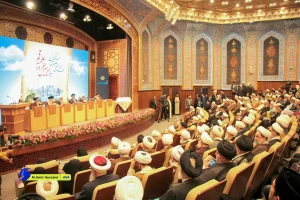
The discussion also extended to cryptocurrencies. By employing analogies, some scholars argued that cryptocurrencies could qualify as “property” (māl), fulfilling the conditions of valid exchange, much like paper currency, which, despite lacking intrinsic value, is recognized by the state. Cryptocurrencies, grounded in technology and mining costs, thus acquire economic value and can be the subject of transactions. The suspicion of gambling-like characteristics in cryptocurrencies was debated and contested. Overall, this panel focused on emergent economic and technological issues, with contemporary seminary scholars engaging both with international economic realities and with the normative ideals of Islamic economics.
In the management section of the panel, one presentation emphasized that Islamic management scholarship in Qom Seminary has undergone three stages: establishment and consolidation, growth and expansion, and adaptation and innovation. In this process, the adaptation of religious principles to contemporary conditions, an educational and ethically oriented approach, and achievements in educational, administrative, and cultural domains were highlighted as the defining features of these transformations.
Political Science and Islamic Political Philosophy
This panel revisited the legacy of al-Fārābī and Mullā Ṣadrā while examining the capacity of Islamic philosophy to engage with contemporary theories of justice and freedom. One particularly innovative effort was the attempt to adapt the concept of “practical wisdom” (ḥikma ʿamaliyya) to modern patterns of governance.
Findings from some studies suggested that political science as a specialized discipline in the Qom Seminary emerged after the Islamic Revolution. The introduction of political science alongside traditional seminary studies led to the training of new researchers and the establishment of academic centers dedicated to Islamic political studies. This transformation resulted in the creation of seminary-university institutions, the development of new subfields in Islamic political science, the advancement of original theories in politics, and the production of numerous scholarly works. Ultimately, this evolution led to the establishment of Islamic political studies as a distinct field, differentiated from secular Western political science.
Another paper presented in this panel traced the historical development of Islamic political philosophy, analyzing its dimensions through the lens of key socio-political events, debates, and published works. This philosophical analysis revealed the thematic scope and substantive content of political philosophy in the seminary over the past century.
Various approaches to the political interpretation of the Qurʾān within the context of the Islamic Revolution were also categorized as follows:
- Maximalist interpretive approaches rooted in the uṣūlī–ijtihādī tradition.
- Social approaches influencing political exegesis.
- Traditional approaches.
- Qurʾān-sufficient political interpretation.
- Ḥadīth-centered approaches to interpretation.
- Minimalist critical approaches influenced by Western epistemology and philosophy, including analytic relativism and hermeneutics.
- Narrative-based approaches allowing for suspension of interpretive activity.
Contemporary Qurʾānic Studies and Exegesis
A survey of published works indicates that a corpus of 474 titles, comprising more than 1,300 volumes, represents the contemporary exegetical achievements of the Qom Seminary.
This panel examined the exegetical methodologies of major Qurʾān commentators, including ʿAllāma Ṭabāṭabāʾī, Ayatollah Jawādī Āmulī, Ayatollah Makārim Shīrāzī, Ayatollah Miṣbāḥ Yazdī, and Ayatollah Subḥānī. Among the key topics discussed in relation to ʿAllāma Ṭabāṭabāʾī were his critique of imposing empiricist theories upon the Qurʾān, his opposition to both literalism and excessive allegorical interpretation, and his insistence on using the Qurʾān to address contemporary needs.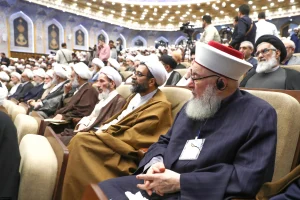
The methodology of Ayatollah Jawādī Āmulī was assessed with attention to his innovations in Qurʾānic sciences—ranging from methodology and sources to principles and interpretive rules. Similarly, the exegetical approach of Ayatollah Subḥānī was highlighted for its emphasis on thematic exegesis over sequential exegesis, its engagement with theological questions and challenges, its application of the Qurʾān-by-Qurʾān method, and its systematic use of transmitted exegetical reports.
Ayatollah Miṣbāḥ Yazdī’s method was characterized by three key features: sustained attention to modern scientific and philosophical schools, a systematic approach to Qurʾānic teachings, and a focus on contemporary intellectual challenges and objections.
One paper further argued that the political dimension of contemporary exegetical activity in Qom reveals a twofold orientation: negatively, the rejection of illegitimate political systems and tyrannical authority; positively, the articulation of the principles of religious governance during the occultation of Imām Mahdī (a). Core elements of this religious governance include the inseparability of religion and politics, the necessity of government, its popular orientation, its legitimacy, and its institutional structures.
Islamic Mysticism and Contemporary Spirituality
The study of mysticism as a discipline within religious scholarship, and of religion as an object of mystical inquiry, reached new levels of technical and systematic sophistication in the Qom Seminary during the past century. This mystical tradition was strongly influenced by the 25-year presence of Mullā Ṣadrā in Qom. Later, the thoughts of figures such as Fayḍ Kāshānī, Qāḍī Saʿīd Qummī, Mīrzā Jawād Āqā Malikī Tabrīzī, and Ayatollah Shāh-Ābādī left profound marks on this intellectual heritage.
In the modern period, Islamic mysticism reached new heights through the contributions of four major figures: Imam Khomeini, ʿAllāma Ṭabāṭabāʾī, ʿAllāma Ḥasan-zāda Āmulī, and Ayatollah Jawādī Āmulī. This panel emphasized the potential of Islamic mysticism to address the crisis of spirituality in the contemporary world. Special attention was given to the mystical thoughts and personality of Imam Khomeini and its undeniable role in shaping the intellectual and spiritual underpinnings of the Islamic Revolution.
Religion and the Social Sciences
This panel explored the interaction between the sociology of religion and social fiqh. Topics of discussion included: the necessity of examining revelation and prophethood through a sociological lens; the implications of tawḥīd (monotheism) for social sciences; the concept of fiṭra (divinely endowed nature) and its relation to sociology; the nature of religion and its relationship to society; social action and the role of conventions (iʿtibāriyyāt); the construction of an Islamic society; divine patterns in society; sociology of religion; Western studies and critiques; explanations of the Islamic Revolution; the role of the two key institutions of seminary and university; the effects of religious policymaking on social cohesion; and the challenges facing the institution of the clergy in modern societies.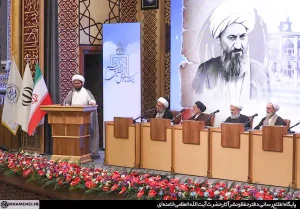
Law and Emerging Legal Paradigms
Islamic law constitutes one of the world’s most dynamic and living legal systems, developed historically through the discipline of fiqh and the work of jurists. Over the past two centuries, Iran has been significantly influenced by global social interactions, not only in science and technology but also in the field of law. Prior to the Islamic Revolution, the adoption of foreign legal systems introduced fundamental changes to Iran’s legal order. In this context, the Qom Seminary, from its re-establishment onward, consistently positioned itself against such borrowings, advocating instead for divergence from non-Islamic legal systems. After the Revolution, the orientation of Iran’s legal framework shifted toward political commitment to the implementation of fiqh-based regulations.
This panel sought to trace the trajectory of Iran’s legal transformations over the past century, situating them within global dynamics and examining the extent of convergence or divergence from religious thought, alongside the scholarly responses of Qom’s jurists.
Another focus was the engagement of Qom scholars with the philosophy of law, particularly the relationship between legal norms and the Sharīʿa, across three historical moments: the Constitutional Revolution, the post-Constitutional era, and the Islamic Revolution. Findings suggest that in the pre-Constitutional period, legal discourse was rooted in traditional theology. During the Constitutional era, however, it departed from purely traditional frameworks—while still upholding the Sharīʿa—in order to move from monarchic sovereignty toward national sovereignty. In the short post-Constitutional interval, a legal vacuum emerged, which was ultimately filled during the Islamic Revolution, when the concept of law reached its fullest expression by aligning its form and substance with divine legislation.
Educational Sciences and Psychology
Educational sciences, evolving from the earlier disciplines of ethics and Islamic pedagogy, have now developed into a recognized academic field within the Qom Seminary. This discipline has achieved significant contributions across three domains—teaching, research, and application—and its influence now extends beyond seminaries to the international stage. Eminent figures such as Imam Khomeini, Ayatollah Muṭahharī, Ayatollah Khamenei, and hundreds of other scholars were shaped within this educational tradition.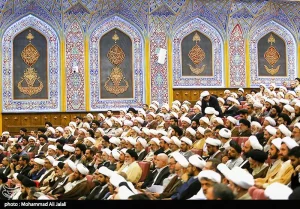
Research in this field has also produced noteworthy scholarly works. One paper, titled “Educational Theories of Seminary Thinkers in the Last Century,” emphasized that the ultimate goal of education is the attainment of truth, closeness to God, and the vision of the Divine. It identified core principles of education: beginning from early childhood, attending to natural needs, avoiding overindulgence, maintaining comprehensiveness, balance, and freedom. Educational stages were divided into the first seven years of life and the period from ages seven to thirty. Factors of education were classified as internal and external, with external factors including reason and reflection, self-purification, worship, self-dignity, and conscience. Key agents—parents, teachers, peers, and work—were also highlighted. Five primary methods of education were introduced: encouragement and discipline, reflection, education through conduct, affection, and exhortation.
The panel further noted that psychological studies, since the introduction of modern psychology into Iran, have attracted the interest of seminary scholars. Instead of adopting a dualistic approach of wholesale acceptance or rejection, seminary engagement has evolved along a continuum of acceptance, refinement, and development. Initially anthropological in orientation, these studies gradually moved toward a distinct psychological orientation. Methodologically, they began with textual research and later expanded into applied organizational activities, case studies, fieldwork, and experimentation.
Key anthropological principles shaping Islamic psychology include the dual dimensions of human nature, free will and choice, purposiveness, gradual changeability, the pursuit of perfection, and human immortality. Each of these principles plays a crucial role in defining the subject, goals, and methods of Islamic psychology. The panel concluded that it is essential for Islamic psychology scholars to first establish its philosophical foundations—including its “philosophy of psychology” as a sub-discipline—and only then construct the discipline of Islamic psychology upon that basis.
New Scholarly Productions Unveiled
Thirty-five volumes documenting the centennial performance of the Qom Seminary—covering fields such as Qurʾānic exegesis, theology, fiqh, Mahdism, and areas of preaching and research—were unveiled during the conference. The call for papers yielded over 16,293 submissions, of which 246 were selected and published following peer review, comprising more than 12,000 pages of scholarly documentation. Around 300 authors and 700 reviewers and scientific collaborators participated in evaluating the submissions, drawing upon over 10,000 references in the documentation and review process.
These scholarly outputs, including a twenty-volume encyclopedia of the works of Ayatollah ʿAbd al-Karīm Ḥāʾirī Yazdī, reflect a comprehensive effort both to revive the seminary’s historical scientific heritage and to generate new knowledge.
Achievements and Paradigmatic Shifts
The first achievement of the conference was the consolidation of an innovation discourse within the framework of tradition. Across domains such as governance fiqh, environmental jurisprudence, Islamic philosophy, and the natural sciences, it became evident that the seminary is moving beyond traditional boundaries into interdisciplinary fields. This movement can be understood as a “paradigmatic shift”: a transition from purely text-centered interpretations to approaches that also incorporate data from social sciences, natural sciences, and emerging technologies.
The second achievement was the serious introduction of evidence-based ijtihād. Reflected across multiple panels and key addresses, this concept indicates that dynamic jurisprudence is rethinking its methodologies to align with a world characterized by empirical uncertainty. Properly developed, this approach could provide a novel model for integrating transmitted knowledge with empirical knowledge.
The third achievement concerns the global horizon of jurisprudential concerns. Topics such as environmental fiqh, intergenerational justice, bioethics, and the digital economy demonstrate the seminary’s engagement with universal issues. This not only updates the seminary internally but also positions it as a potential partner in global academic and scientific discourse.
The fourth achievement involved presenting a new image of the Qom Seminary. Traditionally seen primarily as a guardian of classical texts and teachings, its role in generating contemporary knowledge was often underestimated. During the conference, however, the seminary presented itself as a center for generating new ideas capable of engaging with Western humanities. While this transformation is gradual, it has the potential to rebuild the seminary’s credibility in the global academic arena.
Field and Applied Challenges
Despite these achievements, the path toward intellectual innovation in the seminary is not without challenges. One major challenge is the lack of structural institutionalization. Many of the innovations presented remain at the level of ideas or proposals, requiring systematic embedding in curricula, specialized research centers, and scientific evaluation mechanisms.
A second challenge is the risk of eclecticism or scientism. Engagement with the empirical sciences and humanities necessitates epistemological sensitivity to prevent religious principles from being subordinated to purely instrumental criteria. Critiques voiced during the conference revealed concerns among some seminary scholars about losing traditional boundaries.
A third challenge is communication. Although panels addressed global issues, the primary language of discourse remains largely local and seminary-centered. To impact global academic conversations, the seminary needs to disseminate these achievements in widely-used scholarly languages and through reputable international journals.
Overall, the Centennial Conference of the Qom Seminary was not only an opportunity to review the past but also a platform for envisioning the future. The event demonstrated that the seminary can both preserve tradition and pioneer innovation and interdisciplinary research. However, the success of this trajectory depends on institutionalization, avoiding scientism, and openness to global scholarly exchange. Only in this way can the Qom Seminary, in the new century, be recognized not merely as a custodian of tradition but as an active participant in the production of human and Islamic knowledge.
[1] Qualified Islamic jurists capable of independent reasoning in deriving legal rulings.
[2] Independent reasoning in Islamic law to derive legal rulings.
[3] This principle states that no legal ruling in Islamic law should cause harm or damage to oneself or others. It establishes the prohibition of inflicting or reciprocating harm.
[4] According to this principle, Islamic law should not impose unbearable hardship or excessive difficulty on individuals. Legal rulings must be interpreted in a way that alleviates undue burden.
[5] This rule asserts that when two duties or interests conflict, the more significant or pressing one should be given precedence over the less important.
[6] The chain of narrators.

